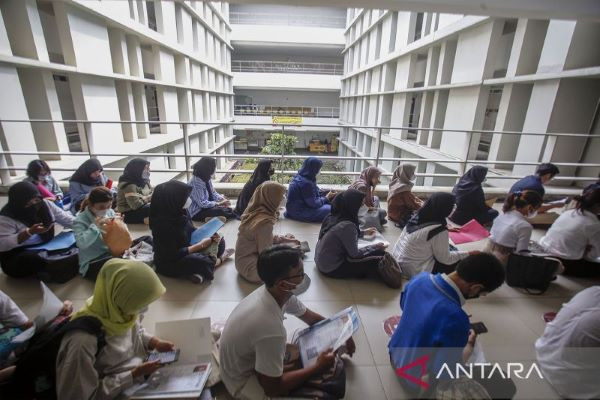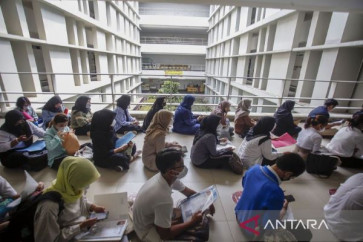Popular Reads
Top Results
Can't find what you're looking for?
View all search resultsPopular Reads
Top Results
Can't find what you're looking for?
View all search resultsFintech loans for higher education: A solution or a burden?
Universities and fintech lenders can offer an alternative funding source for education, but such partnerships must have robust assessment criteria in place to avoid placing undue burdens on students without the capacity to repay.
Change text size
Gift Premium Articles
to Anyone
E
ducation is a fundamental human right guaranteed by the 1945 Constitution. In line with this, the government has allocated Rp 665.02 trillion (US$41.5 billion) for education in 2024, equivalent to 20 percent of the state budget and a 7 percent increase from 2023. This significant investment is crucial to ensure that education remains accessible to all.
Nevertheless, financial challenges remain a harsh reality for many students, particularly in higher education, as the single tuition fee (UKT) continues to rise at an average 3.81 percent annually, according to Statistics Indonesia (BPS). For students from low-income families, the pressure to balance their academic goals with living expenses is becoming increasingly tough.
In response to this financial strain, some universities have partnered with fintech lenders to offer an alternative funding source.
This year to date, 86 universities have established such partnerships (Kompas, 2024), which present a potential solution for students in need of additional financial support who might not have access to more traditional forms of aid. For those students with a stable financial outlook, fintech loans can provide a flexible and timely option to bridge the gap.
Fintech loans have the advantage of being accessible and in many cases, are tailored to a student’s needs. The application process is typically faster than traditional loans from bank, and many fintech lending platforms offer more personalized repayment plans based on individual circumstances. As such, fintech loans can provide much-needed relief for students needing access to immediate funds to continue their education without interruption.
But like any financial product, fintech lending comes with its own set of considerations.
Although the partnership between fintech lending platforms and universities essentially constitutes a civil relationship in accordance with the Civil Code, fintech lenders must also adhere to stringent regulations, including Financial Services Authority (OJK) Regulation No. 10/2022 and OJK Circular No. 19/2023.



















